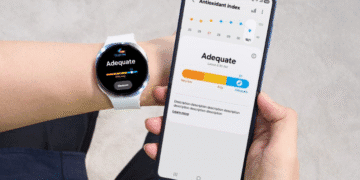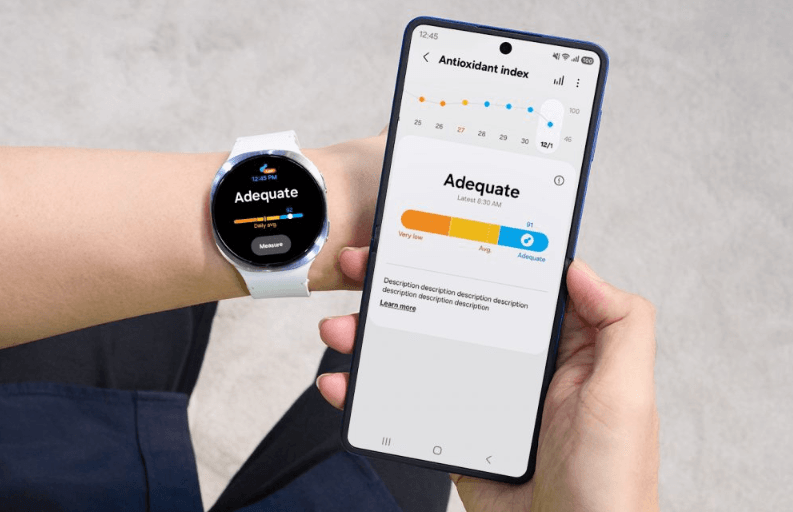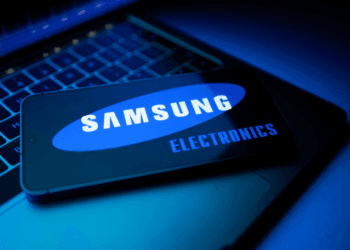DBT Bureau
Pune, 26 Oct 2025
Samsung’s Antioxidant Index on Galaxy Watch8 transforms what once seemed like science fiction into everyday technology. In five seconds, a thumb scan returns precise carotenoid levels – the industry’s first measurable nutrition index.
By miniaturizing lab-grade sensor technology with high accuracy, it turns diet into an actionable metric for healthier aging. Establishing this benchmark in wearable health tracking required years of R&D and extensive prototyping.
Breaking New Ground in Nutrition Tracking
In 2018, Samsung identified a gap in wearables: users could track steps and calories, but not how diet affected health. Antioxidation emerged as a key method to slow aging. “If antioxidant management is neglected, Reactive Oxygen Species (ROS) accumulate, increasing the risk of chronic diseases,” said Dr. Hyojee Joung of Seoul National University.
Engineers focused on carotenoids – proven indicators of fruit and vegetable intake – to create a wrist-based device that translates antioxidant data into simple, actionable insights.
Challenge #1: Shrinking the Sensor
Traditional Raman spectroscopy devices are large and lab-bound. Samsung’s team miniaturized this into a coin-sized sensor combining multi-wavelength LEDs with a custom photodetector array. “Integrating reflectance spectroscopy with LEDs allowed miniaturization while maintaining accuracy,” said Jinyoung Park of Samsung Electronics.
By analyzing light absorbed by the skin at multiple wavelengths, the watch estimates carotenoid levels precisely, supported by real-time calibration algorithms.
Challenge #2: Ensuring Accuracy for All Users
To ensure accuracy across skin tones, engineers used the fingertip, which has the least melanin. Light pressure during scans reduces blood flow and interference, improving accuracy. Trials at Samsung Medical Center validated the sensor’s performance, ensuring global usability.
How It Works
Carotenoids are pigments in fruits and vegetables. Since the body doesn’t produce them, their levels show fruit and vegetable intake. The Antioxidant Index categorizes users as:
- Very low: Less than 50% of the WHO’s 400g daily recommendation
- Low: 50–100%
- Optimal: 100% or more
“Skin carotenoids change gradually, so consistent fruit and vegetable intake raises levels over one to two weeks,” said Dr. Joung.
Lifestyle factors like sleep, stress, and activity also influence the Index. Combined with Galaxy Watch8 features like sleep coaching and Vascular Load monitoring, it offers a holistic view of well-being.
Your Health, Reimagined
“Wearable sensors can encourage daily fruit and vegetable intake, helping prevent cancers and age-related diseases,” said Professor Yoonho Choi from Samsung Medical Center.
The Galaxy Watch8’s Antioxidant Index delivers a breakthrough in health monitoring, helping users identify risks early and take proactive steps toward better health — redefining the role of wearables in preventative healthcare.





















